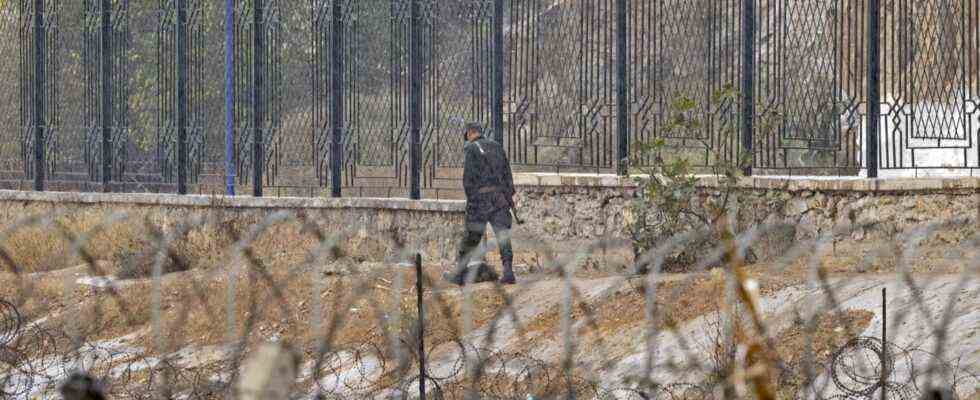The incident testifies to the critical turn taken by an Algerian-Moroccan crisis which threatens every day more the strategic balance in the Western Maghreb. Algiers promised on Wednesday 3 November that the “Cowardly assassination” of three Algerian truckers two days earlier in Western Sahara by gunfire attributed to “Moroccan occupation forces” born “Will not go unpunished”, according to the terms of a press release from the Algerian presidency taken up by the official APS agency.
The convoy of trucks was at a standstill between the towns of Aïn Bentili and Bir Lahlou, a segment controlled by the Polisario Front – a movement fighting for the independence of Western Sahara since 1973 – on the road linking Algeria to the Mauritania, when he was hit by artillery fire from the Moroccan “separation wall” located more than 25 km away, according to security expert Akram Kharief, founder of the Menadefense.net site. The Algerian presidency described the facts as “Barbaric bombardment”, realized by means of a “Sophisticated weaponry” unspecified.
A side effect of the Trump deal
The incident is part of an escalation of tension between Algeria and Morocco, which has already resulted in a rupture of diplomatic relations between the two countries – decided on August 24 at the initiative of Algiers -, against a background of disagreement over the fate of Western Sahara, an unresolved dispute in which the international community has shown its powerlessness. The divorce is a collateral effect of Donald Trump’s “deal” sealed on December 10, 2020 between Morocco and the United States, under which Washington recognized the “Moroccanity” of Western Sahara, in exchange for the normalization of relations between Rabat and Tel Aviv.
Algiers then denounced “The arrival of the Zionist entity” at its borders, paving the way for “Destabilization” from Algeria. A month earlier, the Polisario Front had declared the end of a thirty-year-old ceasefire following a Moroccan army incursion near the Mauritanian border in the area of Guerguerat, until there controlled by the Sahrawi separatists. The operation enshrined the formal resumption of hostilities in Western Sahara, even if the deterioration of the situation never took the form of large-scale clashes portrayed by the propaganda of the Polisario Front. The area was also more tense than the Moroccan propaganda suggested.
Anyway, it’s a bit of a return to square one for this unpaid legacy of decolonization in Africa. The departure, in 1976, of the former Spanish colonizer of this region had led to a conflict between the Polisario – supported by Algeria – and Rabat, which claims it. “Moroccanity” in the name of ancient tribal allegiances. A referendum of“Self-determination” on the future of Western Sahara had been promised by a resolution of the UN Security Council of 1991. Morocco has, however, continued to oppose it, successfully playing its influence with Western capitals, in particular France, which ended up rallying to a simple Moroccan autonomy plan.
You have 42.03% of this article to read. The rest is for subscribers only.

